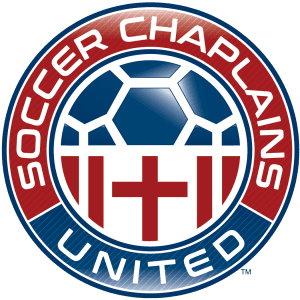I recently returned from the annual conference on sports chaplaincy, held by Sports Chaplaincy – United Kingdom (or SCUK). The two day conference centered on the growing issue of Mental Well-being in Sport and there was a tremendous amount of attention on the players and coaches with a view to how the pressure of sport is impacting to the social, spiritual, mental, and other aspects of life.
Aside from the main conference, though, was an undercurrent, a subtext. Even from the beginning of the conference, the issue of chaplaincy standards and accountability was an issue that was brought to the table. In all other types of positions and places, there are standards of excellence that usually accompany and accredit one to work in a particular position or field. For example, coaches in sport (esp. soccer) can coach to a certain level with certain credentials – certifications and badges are required to coach at the higher levels (in addition to life experience and other things). So, too in healthcare – nurses have varying degrees of skill and their pay and position are dependent upon the level of training and education that they have. Those levels also help to determine benefits, as well as to limit consequences for things like negligence by providing a structure for accountability.
Currently, SCUK in partnership with the University of Gloucestershire, are developing a program for chaplaincy education and training – but not just any chaplaincy training, rather one specific to sport. Currently, the program is among one of the first of its kind in the Western World. Stateside, Baylor University announced last year that it was beginning work toward the development of graduate program with a similar emphasis.
Although these programs are really just beginning, there is a lot to build on as chaplaincy has had a long legacy – especially in healthcare and the military. But one critical issue yet to be addressed is that of standardization. In healthcare and the military, there are basic standards that must be met – ordination with a recognized religious body, Master of Divinity or similar equivalency, Clinical Pastoral Education (CPE), Board Certification from a recognized organization (ACPE or CPSP) are among some of the standards for chaplains in those fields currently.
While a specific training track for chaplains in sport will be helpful to address the unique context and challenges that are faced, it still stands to reason – what will be done with those teams, clubs, and organizations that currently have a “chaplain” that may or may not have the education, training, or accreditation that is currently being developed?
In the United States, there are few chaplains associated with professional sport that are actually paid by the club or organization. Most “chaplains” have not had chaplain specific training, but are usually associated with Christian organizations with a primary focus on Christian evangelism and discipleship. Not bad things, but definitely not “chaplaincy” as it is currently known and understood today.
There are some instances where chaplaincy training might be helpful in avoiding certain situations like the one the chapel leader for the Washington Nationals was involved with in 2005. But it remains to be seen if the development and education structures for sports chaplaincy will take root for the other simple fact that it is rare for professional sports chaplains to change much – once a team develops trust and relationship with a chaplain, there is usually a longevity to the relationship (at least at the professional levels). And if there is really no pay for those working in professional sport, will there be much interest in investing graduate level money and time into the vocational training?
While there are still many questions similar to the ones I raise that need to be answered, I do believe that we are seeing movement in a positive direction. Personally, I am thankful for having a broader understanding and training as a chaplain which allowed me flexibility to be a chaplain in hospice and to translate much of my training into the professional sports environment. I am looking forward to seeing how education for sports chaplains develops in the coming years and I think that it speaks well for the future of sports chaplaincy to see some education and accreditation structure and standards being developed. In the coming years it is my hope and desire that CrossTraining will be able to be at the forefront of many of these changes.
Blessings,
Rev. Brad Kenney



